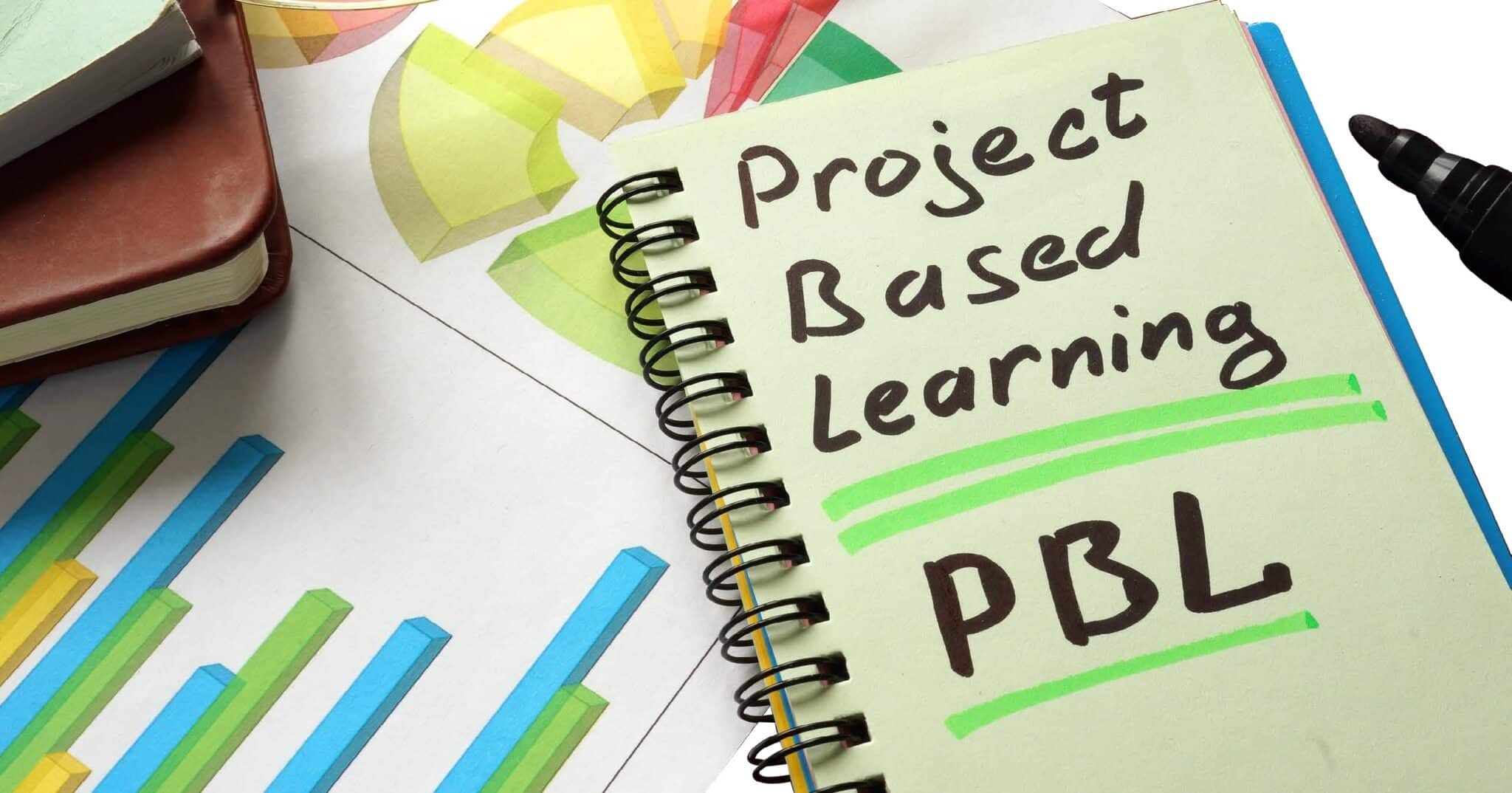
Yom Yerushalayim
August 20, 2020
Project-Based Learning: Start Here
March 1, 2021by Dr. Sarah Levy and Mark Parmet
Project based learning (PBL) is a form of student-centered, progressive education which allows students to take an active role, empowering them to construct meaning out of what they study. Like experiential learning and design thinking, PBL immerses students in their learning in an interdisciplinary way and provides space for real-world applicability. PBL’s unique characteristics, like inquiry-based learning, also include an element of student autonomy and opportunity to pursue student passions.
Using progressive education (which John Dewey began to popularize in the early 20th century) as its foundation, PBL’s impact on learning is well-documented:
- In the realm of academic achievement, students learning through PBL retain content longer and have a deeper understanding of what they are learning (Penuel & Means, 2000; Stepien, Gallagher & Workman, 1993), and in specific content areas, PBL has been shown to be more effective than traditional methods for teaching math, economics, language, science, and other disciplines. (Beckett & Miller, 2006; Boaler, 2002; Finkelstein et al., 2010; Greier et al., 2008; Mergendoller, Maxwell, & Bellisimo, 2006)
- Connected to future-ready skills and 21st century competencies, students demonstrate better problem-solving skills in PBL than in more traditional classes and are able to apply what they learn to real-life situations (Finkelstein et al., 2010), show improved critical thinking. (Beckett & Miller, 2006; Horan, Lavaroni, & Beldon, 1996; Mergendoller, Maxwell, & Bellisimo, 2006; Tretten & Zachariou, 1995), and improve their ability to work collaboratively and resolve conflicts (Beckett & Miller; Chan-Lin, 2008)
- As related to students’ motivation to learn, PBL shows promise as a strategy for closing the achievement gap by engaging lower-achieving students (Boaler, 2002; Penuel & Means, 2000), and in PBL classrooms, students demonstrate improved attitudes toward learning, exhibiting more engagement and self-reliance. (Thomas, 2000; Walker & Leary, 2009)
Looking specifically towards the impact on achieving desired results in a Judaic studies classroom, however, the research is more limited and far more anecdotal. On the surface, project-based learning seems to be a natural fit for the limudei kodesh due to its focus on meaning and relevance. Additionally, the emphasis on teaching the 21st century skills of communication, collaboration, creativity, and critical thinking resonates with the Jewish tradition as they are all skills that have been vital to the teaching of text for thousands of years. Furthermore, PBL is built around a concept of sustained inquiry and the encouragement of asking questions, which is a key tenet of textual study.
A signature attribute of PBL is that it focuses on less content but going much more deeply into that content. As such, if a goal of a Judaic studies class, for example, is coverage in order to produce a sense of Jewish literacy, PBL is a challenging approach to take. This does not mean, however, that PBL cannot be used to achieve the desired learning outcomes; rather, educators must be very thoughtful about which learning outcomes they integrate and how.
PBL engages students in their learning at a deeper, more personal level, however, encouraging them to integrate what they are learning into their lives and make real meaning of it. It asks them to take the traditional texts and make them their own by applying them to their lives in relevant ways that bring the learning to life. It provides them an opportunity to integrate their learning from Judaic studies with learning in other areas to strengthen their identity. It makes them an important part of their learning, asking them to delve deeply into the content area, examining it in new ways and creating something with it, meaning that it is more likely to stick with them for years to come.
PBL can be used in any classroom to achieve a variety of desired learning outcomes. For example:
- If the desired learning outcome is understanding the textual basis for common Jewish values, then a way to use PBL to achieve this is to invite older students to create video commercials for younger students (preschoolers and elementary school students) about specific Jewish values, connecting the Biblical source to its modern-day applicability. Older students could then initiate and run a school-wide campaign to put the learning of everyone into action.
- If the desired learning outcome is learning the specific traditions surrounding death and mourning according to Judaism, a possible way to achieve this through PBL is to partner with a local Jewish chevrah kadisha and/or mortuary and create a user-friendly guide for families in mourning, perhaps differentiating and creating different guides for different populations (for example, one for younger children). Students could also use skills such as content writing, layout, graphic design, and math to create their guides, making it an interdisciplinary unit.
- If the desired learning outcome is finding personal meaning in the Haggadah and Exodus narrative, a way to achieve this through PBL would be to examine the text of the Haggadah and connect it to the narrative in the Torah text, discussing what it must have felt like to be refugees and strangers. Partner with a local organization that supports refugees, using the empathy cultivated through the examination of texts as a basis, and empower students to figure out how to best make an impact.
In each of these examples, a learning outcome is clearly articulated, and the project-based learning unit addresses that outcome in a meaningful, relevant way for students. Each example asks for students to take action and make an impact on the world around them, allowing for the opportunity to put learning directly into action. Additionally, each of the examples supports sustained inquiry, allowing for students to explore a variety of questions, and an element of student voice and choice, giving them a bit of autonomy in their learning.
Tikvah Weiner, founder of The Idea School, wrote in a piece entitled “The Promise of Progressive Jewish Education” for Lehrhaus: “What I’ve seen in The Idea School Beit Midrash and Inquiry Beit Midrash is that our students–and teachers–are deeply involved in what anyone in any Beit Midrash is doing–engaging in learning le-shem shamayim and, by doing so, bringing themselves closer to G-d and bringing G-d more closely into the world.” Weiner’s school utilizes PBL as a primary approach, engaging students in immersive, extended units that culminate in an exhibition of learning.
In August 2012, Behrman House, a major publisher of Jewish curricular resources, published a “Learning Essay Series,” focused on project-based learning. They stated, “This year, Behrman House editors are producing textbooks and teachers’ guides that emphasize project-based learning (PBL). We have set this editorial priority for one important reason: PBL has the potential to liberate Judaism from the exclusive domain of the synagogue.” In an essay titled “A Rationale for Using Project-Based Learning in the Jewish Classroom,” Mark H. Levine explains the history of complementary schooling and its focus on b’nai mitzvah.” PBL, he argues, offers a solution: “Project-based learning requires students to apply the knowledge and skills learned in class to solve genuine problems outside the classroom/synagogue. By its nature, PBL demonstrates that Judaism is relevant to every aspect of our students’ lives.” Levine continues, “When Jewish education is drained of relevance to daily life, it loses its ability to achieve this important goal. Because project-based learning is a classroom strategy that requires students to explore real life problems, it can be a vehicle to liberate Judaism from the exclusive domain of the synagogue and restore the transcendent value of Judaism.” Levine argues that PBL gives students the opportunity to make their learning (in this case, Judaism) their own, having a powerful impact on the role of the learning in students’ lives.
The goal to “liberate Judaism from the exclusive domain of the synagogue” connects to the idea that, for some of our students, Judaism is seen just as something to do at synagogue or in the classroom, without real-life value (this is especially true for students who attend a supplementary school rather than a day school or at schools where Judaics are largely contained to one block of the day). The argument Levine makes is that through integrating Judaic studies into PBL, it helps students to see the real-world value and relevance to Judaism outside of the obvious (such as synagogue or b’nai mitzvah). It gives students a chance to apply their learning in an authentic way through their actions (such as adding meaning to tefillot or guiding their community service by Jewish values or using text from the Torah as a source when solving problems in the secular world) and to seamlessly integrate their Jewish identities with the rest of their identities.
We have many goals as Jewish educators. We want students to be Judaically knowledgeable and literate. We want students to feel a connection to Judaism and be proud of that connection. We also want to empower students to be thoughtful, knowledgeable, committed Jews who understand their role in the world and understand how Jewish tradition helps guide our interactions with ourselves, each other, and the world around us. As such, our teaching should reflect all of our desired outcomes. Project-based learning has proven to be an effective way to achieve desired learning outcomes in schools across the country and is a valuable tool for our Judaic studies classrooms as well, giving space for students to foster their Jewish identity, hone their skills, and explore real life problems though a Jewish lens, better preparing them to truly make an impact in the world that awaits them.
Dr. Sarah Levy and Mark Parmet serve as the co-founders and heads of school for Einstein Academy, a new private school located in Denver, CO. The have a combined 35 years of experience in education, including youth and family education, adult education, and day school education. They can be reached at [email protected] or [email protected].

